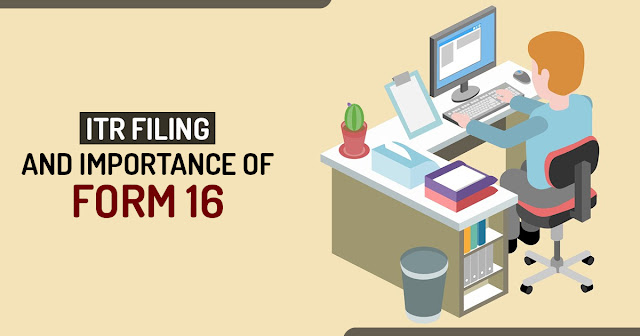Why Do I Need a Form 16?
Every year, all salaried individuals receive a Form 16 from their employer, which is a tax-related document. Usually, Form 16 includes information relating to income paid to the employee, any tax-saving investments and deductions made by the employee, and any tax deducted at source (TDS), applicable to a particular year.
What Are the Benefits of Form 16?
Employees must use Form 16 to file their income tax returns, and the details contained in it are absolutely essential. You can keep a detailed record of your salary and taxes by completing Form 16. As proof of tax payment from your end, it essentially serves as proof that you have already paid the government. As proof of your income and taxes paid, you will need to submit Form 16 when filing taxes. In addition, Form 16 can be used to prove your income when applying for a loan or credit. To verify whether taxes paid have been correctly calculated, Form 16 must also be completed. As a final note, Form 16 can also help you obtain a visa if you use it as a supporting document. In light of the many reasons for which salaried employees need a Form 16, it is absolutely vital for them to have one.
Parts A and B of Form 16
Form 16 Parts A and B for ITR filing have two separate components. Form 16 Part A contains the following information:
- Employee information, including name, address, PAN, and other personal details.
- A description of the employer, that includes the name of the company, its Tax Deduction Account Number (TAN), and its Permanent Account Number (PAN).
- A list of all the TDS that was deducted from the employee's salary during the quarter, as well as the bank details and transactions related to those deductions
- You are also required to supply your employer's financial year and the period during which you have worked for the company in Part A of Form 16.
Detailed information about your salaried income can be found in Part B of form 16, such as your salary components, deductions, exemptions, and the final tax owed. The information contained in Part B of Form 16 is more specific:
- A gross salary breakdown with details about everything from the basic salary, house rent allowance, contributions to provident funds, TDS, and professional taxes.
- A number of tax breaks are available to individuals, including HRAs, medical expenses, and conveyance allowances.
- In the Income Tax Act, of 1961, Chapter VI A provides exemptions.
- In addition to the tax amount due, the amount paid in taxes as well as any tax refunds.
Form 16A and Form 16B are entirely different forms, and they should never be confused with parts A and part B of Form 16. All income other than salary must be reported on Form 16A, which provides details regarding TDS. In addition to TDS on freelance earnings, TDS on interest earned from bank FDs, and TDS on commissions, rents, and other non-salary income, this includes TDS on interest earned from FDs. In Form 16B, find details about TDS that has been deducted from a property sale when it is sold. Deductions from the sale price are to be paid to the government by the buyer of the property. In the following step, the seller is issued a Form 16B, which serves as proof that the TDS has been deposited with the government.


Comments
Post a Comment